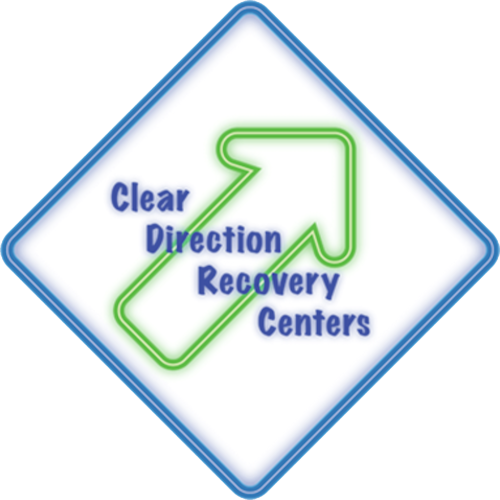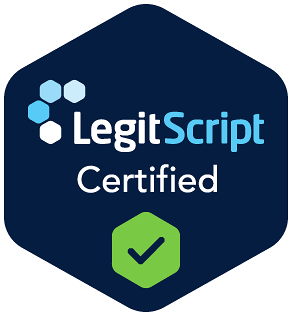Holistic Addiction Treatment Programs in New Jersey
Addiction affects more than just the body. It can impact the mind, emotions, and even a person’s sense of purpose. Because of this, some treatment programs go beyond focusing only on stopping substance use.
Holistic addiction treatment looks at the entire person. This approach considers mental, physical, emotional, and spiritual health as all connected. It aims to support healing in every area that addiction touches.
At Clear Direction Recovery, we combine holistic substance abuse treatment with evidence-based clinical care. Our programs address the whole person, not just the addiction. We work with you to create a personalized recovery plan that meets your unique needs and goals.

What is holistic addiction treatment?
Holistic addiction treatment treats the whole person, not just the substance use problem. It combines traditional medical care and therapy with practices that support physical health, emotional healing, and personal growth.
This approach recognizes that addiction affects every part of a person’s life. It may stem from stress, trauma, mental health issues, or physical problems. Holistic substance abuse treatment addresses these underlying factors alongside the addiction itself.
The key differences from traditional treatment include:
- Whole-person focus: Treats mind, body, and spirit together
- Multiple therapies: Uses both clinical and complementary approaches
- Personalized care: Tailors treatment to each person’s specific needs
- Long-term wellness: Builds skills for ongoing health and recovery
How does holistic drug treatment work?
Holistic drug treatment combines proven medical approaches with complementary therapies to provide a comprehensive approach to treatment. You still receive addiction counseling, medication when appropriate, and other standard treatments. The holistic approach incorporates practices such as mindfulness, nutrition guidance, exercise, and creative therapies.
Treatment plans are tailored to your specific situation, health, and preferences. Some people benefit more from yoga and meditation, while others respond better to art therapy or acupuncture.
The process typically includes several phases:
- Assessment: Evaluating physical, mental, and emotional health
- Detox support: Using both medical care and holistic methods during withdrawal
- Active treatment: Combining therapy with complementary practices
- Skill building: Learning coping strategies and healthy habits
- Aftercare planning: Preparing for ongoing recovery support
What therapies are used in holistic drug rehabilitation?
Holistic drug rehabilitation programs offer various complementary therapies alongside traditional treatment. These practices help address different aspects of recovery and healing.
Mindfulness teaches you to pay attention to the present moment without judgment or criticism. It helps you notice thoughts and cravings without automatically reacting to them. Meditation practices can reduce stress and improve emotional regulation.
Research shows mindfulness-based approaches can lower relapse rates. A 2023 study found that individuals who learned mindfulness techniques experienced fewer cravings and improved treatment outcomes.
Yoga combines physical poses, breathing exercises, and meditation. It can help reduce stress, improve physical strength, and increase body awareness. Movement therapy includes activities like tai chi or dance that connect physical activity with emotional expression.
These practices help repair the mind-body connection that addiction often damages. Regular movement also supports physical healing and can naturally improve one’s mood.
Substance use often leads to poor nutrition and vitamin deficiencies. Nutritional counseling helps restore physical health through proper diet and supplements when needed.
A registered dietitian works with you to:
- Identify deficiencies: Common issues like low B vitamins or protein
- Plan balanced meals: Foods that support brain healing and energy
- Develop healthy habits: Meal planning and cooking skills
- Address sugar cravings: Managing sweet foods that can trigger addictive patterns
Art therapy, music therapy, and journaling offer ways to express emotions that may be difficult to put into words. These activities can help process trauma, reduce stress, and discover new interests.
Creative therapies are effective for individuals who struggle with traditional talk therapy or seek additional ways to explore their feelings and experiences.
Contact Clear Direction Today!
Why Wait? Find The Help You Need By Reaching Out To Us Today! Our Admissions Team Is Standing By.
What are the benefits of holistic recovery approaches?

Holistic recovery addresses multiple areas of health simultaneously. This comprehensive approach can lead to better outcomes than focusing only on stopping substance use.
Research from the Substance Abuse and Mental Health Services Administration shows that programs combining clinical and holistic methods have higher treatment completion rates. People in these programs also report a better quality of life during and after treatment.
Key benefits include:
- Stress management: Learning healthy ways to handle pressure and triggers
- Physical healing: Repairing damage from substance use through nutrition and exercise
- Emotional skills: Developing coping strategies for difficult feelings
- Personal growth: Discovering new interests and building self-confidence
- Relapse prevention: Having multiple tools to maintain recovery
How do I choose holistic addiction treatment centers?
When searching for holistic addiction treatment centers, consider both the clinical services and complementary therapies they offer. Quality programs integrate these approaches rather than treating them as separate services.
Important factors to evaluate:
- Accreditation: Look for centers accredited by organizations like The Joint Commission
- Staff credentials: Verify that both clinical and holistic providers are properly licensed
- Evidence-based practices: Ensure therapies are supported by research
- Individualized care: Programs that customize treatment to your specific needs
- Continuing support: Aftercare services and ongoing resources
Ask about which specific holistic therapies are available and how they’re integrated with clinical treatment. A good program will explain how different approaches work together to support your recovery.
What makes holistic substance abuse treatment different for various substances?
Different substances affect the body and mind in unique ways. Holistic substance abuse treatment adapts complementary therapies to address the specific challenges of each type of addiction.
For alcohol use disorders, programs often emphasize nutrition counseling since alcohol can cause severe vitamin deficiencies. Mindfulness practices help manage triggers, while acupuncture may reduce cravings and anxiety.
Opioid addiction treatment frequently includes yoga and meditation to help with pain management and stress. These practices can be especially helpful since many people started using opioids for physical pain.
Stimulant addiction treatment often focuses on physical exercise and creative therapies. These activities help restore natural brain chemistry and provide healthy ways to experience excitement and pleasure.

Who benefits most from holistic drug rehab?
Holistic drug rehab can benefit anyone seeking addiction treatment, but it may be particularly helpful for certain individuals. People who haven’t succeeded with traditional treatment alone sometimes find better results with a comprehensive approach.
This treatment style often works well for people who:
- Have co-occurring mental health conditions like anxiety, depression, or trauma
- Prefer natural or complementary approaches alongside medical treatment
- Want to address lifestyle factors that contribute to their addiction
- Are interested in personal growth beyond just stopping substance use
- Have tried traditional treatment without lasting success
The individualized nature of holistic programs allows them to adapt to diverse learning styles, cultural backgrounds, and personal preferences.
FAQs about holistic addiction treatment
Most insurance plans cover the clinical components of holistic addiction treatment, such as counseling and medical care. Coverage for complementary therapies varies by plan, but many insurers now include evidence-based holistic practices when they’re part of an accredited treatment program.
Holistic addiction treatment programs usually last 30 to 90 days for the initial intensive phase, similar to traditional programs. The length depends on your individual needs, the severity of addiction, and your progress in treatment.
Holistic approaches complement rather than replace traditional addiction medicine. Medical supervision remains important for safe detox, managing withdrawal, and treating co-occurring health conditions. The most effective programs combine both approaches.
At Clear Direction Recovery, we believe in treating the whole person through our comprehensive, holistic approach to addiction treatment. Our experienced team integrates evidence-based clinical care with complementary therapies to support lasting recovery. We’re here to help you build the skills and habits you need for long-term wellness and sobriety.
Contact Clear Direction Recovery to start your personalized treatment journey.

